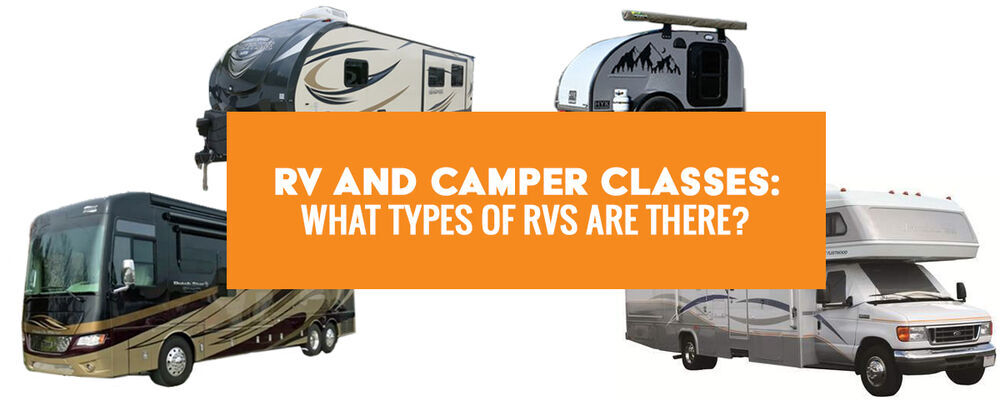
RV and Camper Classes: What Types of RVs Are There?
RV Types: Motorhomes vs Towables
Do you have a truck or SUV capable of towing a trailer (or plan on purchasing one)? Do you want a "daily driver" to easily make trips to and from the campsite? Or will you mostly stay put at the campsite once you get there? How much setup/teardown are you prepared to do? Towable trailers generally require more work, since you have to hitch/unhitch them each time you move them. What style of floorplan appeals to you? Most long-time RVers generally agree that floorplan is one of the most important factors in choosing a rig. Don't worry so much about what looks better on paper (for instance, a few MPG in either direction probably won't matter in the long run), but rather what you can see yourself living in for however long you plan on camping. How much space do you need? Who is camping with you? Do you plan on bringing the bare necessities or living comfortably? Will you bring a bike, ATV, kayak, or other toy along? How much do you want to spend? Don't forget to factor in a tow vehicle (if necessary), a hitch and any installation costs, fuel, maintenance, and storage.
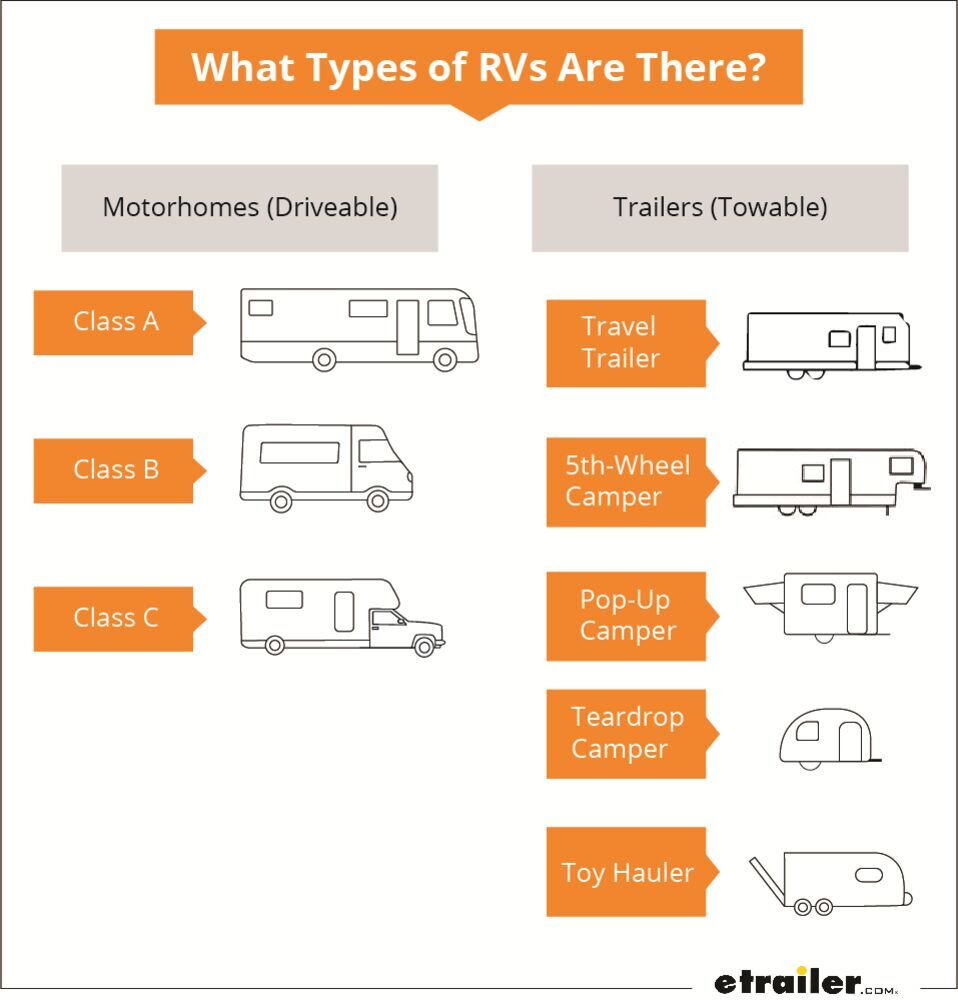
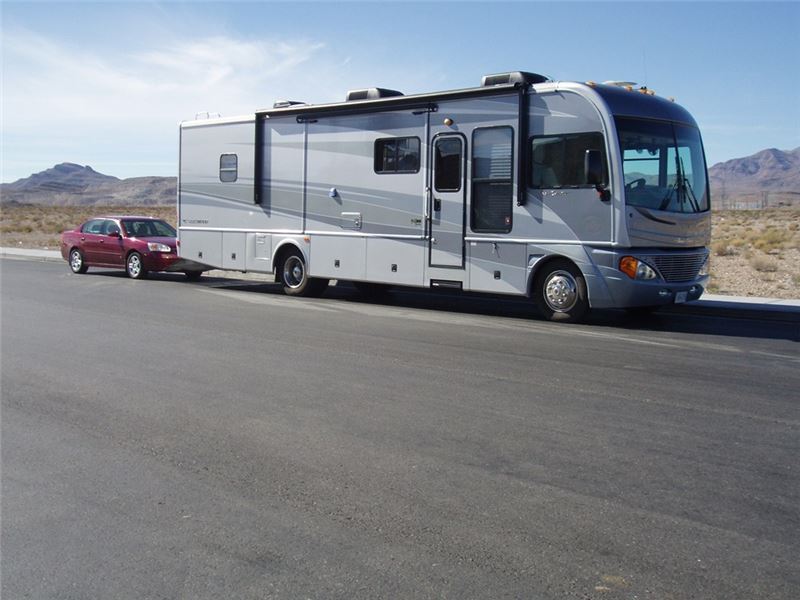
Class A Motorhomes
Lots of Space & Storage Class A RVs are spacious and comfortable, with plenty of room for friends, kids, or pets. You can purchase an RV-rated bike rack to carry your bikes with you behind your rig. Plus, all the underbelly storage space makes these a great option for full timing. Living in Luxury You can find high-end touches on any RV style if the budget is high enough, but Class As are known for home-like luxuries like fireplaces, fancy backsplash, and even washer/dryer hoookups. Comfortable Driving Experience Many people are intimidated by Class As and assume that the smaller Class C RVs are naturally easier to drive. However, this isn't usually the case. In fact, I'd venture to say most people who have driven both Class A and Class C RVs prefer the Class A driving experience. Why? Class C RVs have standard vehicle seats, standard vehicle legroom, and a standard vehicle windshield, so you feel like you're driving a large vehicle, because—well, you are. Class As, on the other hand, come with comfortable, luxurious seats (these seats also double as comfy chairs in your living space!) and lots of legroom. They also have that huge panoramic windshield, so you've got all the visibility you could ever want. What's more, the long wheelbase on Class As means easier turning clearance and less susceptibility to crosswinds. You Can Bring A Car Depending on what type of car you have, you might be able to bring it along by "flat towing" it behind the motorhome. Not all cars can be transported this way, but if yours can, bringing it along for grocery runs or sightseeing can be a great option.
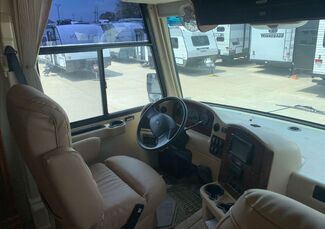
Price Class A RVs are the most expensive type of rig, with some rivaling the price of actual stick-and-bricks houses. Campground Limitations There are some roads and campgrounds that just aren't Class A-friendly. These big rigs do fine on the highway, but windy, narrow back roads? Not so much. Plus, not all campgrounds have campsites long enough to accommodate the lengthier Class As. Really consider where you want to camp when RV shopping. Do you want to be able to camp pretty much anywhere, or are you okay researching ahead of time and making sure campgrounds are accessible to you? MPG There's no getting around it—fuel is expensive, and your gas mileage in a Class A motorhome is going to be, well, terrible. If you plan on traveling often rather than setting up camp for long periods at a time, this might be a consideration for you.
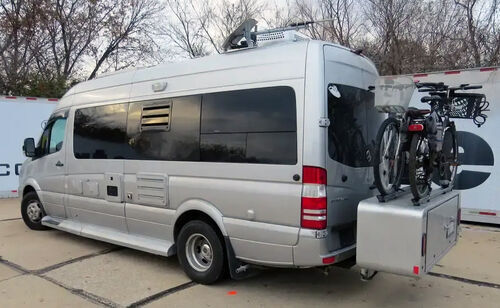
Conversion Options You can buy a Class B RV from a dealership, and it'll come with all the plumbing, electrical, insulation, and other amenities you need. However, a growing number of people are buying used vans and converting them DIY style. Popular vans for conversions include Mercedes Sprinters, Ram ProMasters, and Ford Transits. Why DIY? The biggest reason is price. You can save a ton of money converting an old van into the camper of your dreams. There are kits available that include everything you need to complete the conversion yourself. You also have more customization options this way, since you can decide what you need and what you don't. The price of a van conversion varies wildly. You can do a minimalist conversion for a few grand (expect around $3,000-$5,000), or you can go all out for $50,000 or even more. I'd caution against getting into a van conversion lightly—definitely do your research when buying a used van and know what you're getting into—but if you budget and plan right, you can build a solid camper van for a fair price. Affordability (Compared to Other RVs) This is largely dependent on your personal preferences—are you buying new? Do you want the most luxurious amenities?—but like I mentioned above, you can typically get off cheaper with a Class B compared to other motorhome styles. Maneuverability Class B vans are the smallest types of motorhomes, and as such, they're much more maneuverable than other types. This means you can take them almost anywhere you can drive, including off road. B+ (Not the Grade) B+. It's a grade. It's a blood type. It's also class of RV! Think of Class B+ RVs as the mid-step between a Class B and a Class C. B+s are built on a van chassis, and they typically have a cab-over like a Class C. (Don't be fooled, though — these cabs usually offer storage space rather than a whole sleeping quarters.) B+ vans are typically smaller than Class Cs and larger than Class Bs. Think Goldilocks, but for camper vans.
Space Most van lifers are singles or couples. If you plan to camp with friends, kids, or large pets, you might consider another RV option with more space. A couple of stormy days inside become a lot tougher when everyone is piled on top of each other in what's essentially a single room. You also want to be honest with yourself about what you can comfortably live with. How much space do you really need? It's Your Only Vehicle Setting up and taking down camp can be a bit of an ordeal. When you have a tow vehicle or an extra vehicle along, it's easy to drive into town, head down to the river, or drive up to that great hiking spot. When you're in a Class B, however, it's your only mode of transportation. You don't need a tow vehicle, nor can you tow a vehicle behind it. So you have to tear down camp every time you want to go somewhere. If you're the type of camper who sets up camp and stays in one spot, this might not be a big deal. But if you like to use your camp as a base and explore the area you're in, a Class B may end up being more of a hassle.
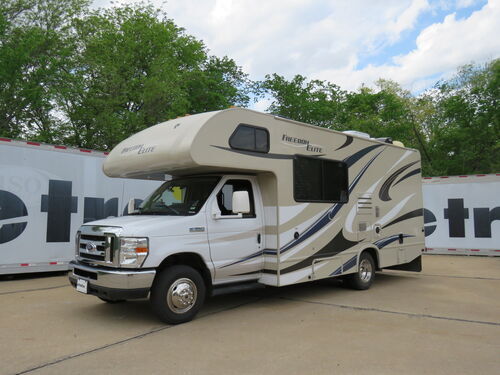
"Goldilocks" Size You can certainly find short Class As or long Class Cs, but generally speaking, Class Cs are usually shorter than Class As but longer than Class Bs. You may still struggle to find a camping space with longer Class Cs, but if you stay on the shorter side, you'll have an easier time finding accommodations. The Cost Factor With the reduction in size, you're also looking at a reduction in price with Class Cs compared to Class As. You Can Bring A Car Just like with Class As, you can often tow your own vehicle behind your rig (this is called flat towing). This means you don't have to tear down camp every time you want to run to the grocery store or drive up to that great photo spot. The Addition of Super Cs What exactly is a Class Super C? No, it's not a regular Class C in a cape. Picture a normal Class C but with a larger, upgraded chassis; underbelly storage like with a Class A; and (typically) a diesel engine. Super Cs are becoming more popular due to their power, drivability, towing capacity, and overall comfort.
Why Not a Class C?
The "Truck" Cockpit Your Class C cab probably won't feel much different than a standard van cab, but "familiar" might not be best here. You won't have the extended legroom, comfortable chairs, or high visibility of a Class A. Plus, this is driving space, plain and simple, so you'll lose this part of your livable RV space. Driveability The shorter wheelbase of Class Cs compared to larger Class As mean that you won't have the same tight turning radius. Plus, that overhang behind the rear axle means you'll likely feel crosswinds much more.
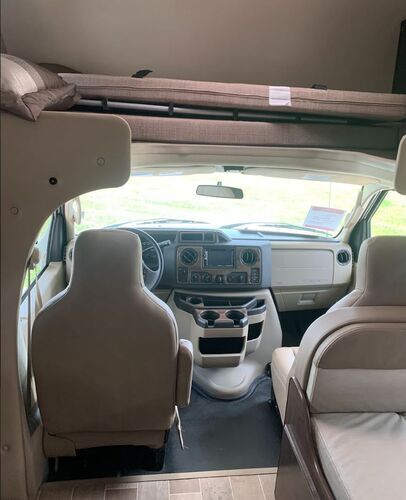

BYOV (Bring Your Own Vehicle) One of the best parts about towing a travel trailer is that, by design, you bring your tow vehicle along. If you have a truck, Jeep, or SUV, you might be able to tow with the vehicle you already have. (Not sure what your vehicle can handle? Learn more about towing weight requirements here.) Why is this important? Well, maybe you need to make a grocery run, or check out the local sights, or drive your kayaks down to the lake. You don't have to pack up camp; instead, just hop in your front seat and go. You Can Start on a Budget You can certainly spend big bucks on a luxurious travel trailer, but this isn't required. Prices for small travel trailers generally start around $15-$20k. This is way less than any class of new motorhome. Variety of Sizes There's a huge variety of sizes in the travel trailer world. You can get cozy 15 footers or massive 40-ft homes-on-wheels, depending what you're looking for.
Why Not a Travel Trailer?
BYOV (The Flip Side of the Coin) The whole "must bring a vehicle" thing is a pro as well as a con. You have to have a vehicle capable of hauling your trailer, or you have to purchase one. So obviously, this can be a huge added expense. Setup In general, travel trailers involve a lot of setup and break down at the campsite, at least compared to motorhomes. With a travel trailer, you have to back your vehicle up to your camper, lower the camper onto your hitch ball, hook up your wiring and safety chains, then do it all in reverse once you reach the campsite. You also need to level and stabilize your rig everywhere you go. This isn't necessarily a difficult process once you get the hang of it, but it definitely adds to the hassle. A 5th Wheel Might Make More Sense The shorter the camper, the easier it is to tow. But if you're looking for a larger rig, you might want to take a look at fifth-wheel campers (more on those below). Because of the way fifth wheels connect to your tow vehicle, it's much easier to tow a 35-foot fifth wheel than it is a travel trailer of the same size.
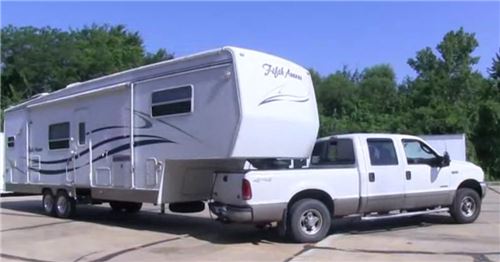
Plenty of Space If you're traveling with a family, full-timing, or just looking for more space on the road, a fifth wheel is a great option. As far as towable options go, these offer the most living and storage space. You'll Always Have a Truck Since you literally can't tow a fifth wheel without a truck, you'll always have your truck at the campsite for sightseeing or grocery runs. (Learn more about choosing the best truck to tow a fifth wheel here.) The Layout Layout is one of the most important deciding factors in choosing an RV, and fifth wheels offer a variety of great options. The raised space on fifth wheels are often bedrooms, but I've also seen some luxurious entertainment rooms up there (complete with several sofas and a flat screen). If you're full-timing or traveling with kids, it can be nice to have this division of space. Plus, the layouts often give fifth wheels more of a "home-like" rather than "trailer-like" feel inside.
Why Not a Fifth Wheel?
You Have Limited Tow Vehicle Options Fifth wheels can only be towed by trucks with sufficient towing capacity (at least full-size 1/2-tons like an F-150, but more often 3/4- or full-tons like an F-250/F-350). If you don't have one of these trucks already, you'll need to purchase one, so that's a considerable added expense. Also keep in mind that your truck bed will be dedicated to your fifth-wheel hitch, so you won't be able to use the bed space for hauling anything with you on the road. The Typical Towable Set Up Like all towable trailers, fifth wheels require you to hitch up, unhitch, stabilize, etc. every time you move to a new location. They Cost More Than Travel Trailers While fifth wheels generally cost less than motorhomes, the cost of a fifth wheel can certainly add up. Not only do you have to purchase the camper, you also have to buy a capable truck if you don't already have one, since not all trucks are capable of towing fifth wheels. You'll also need a fifth-wheel hitch setup, which can easily cost over $1k—much more than most traditional hitch-and-ball setups. (Although you may require a weight distribution hitch for your ball hitch setup, so this can add to the overall cost.)
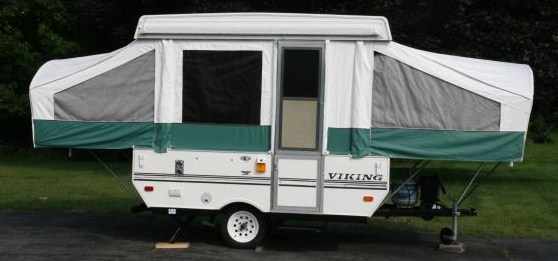
The Cost Factor A lot of new campers start with a pop-up camper simply because it's a way to get out and start camping without spending a fortune. Used or even new pop-ups are relatively affordable. Plus, you might be able to fit your pop-up camper in your garage, which saves on storage fees. And when it comes to fuel prices, it's always cheaper to tow smaller! Simple, but with Amenities One advantage that pop-ups have over other compact campers, like teardrops, (more on those below) is that pop ups typically have some form of bathroom, whereas most teardrops don't. A pop up might have a full toilet/sink/shower setup. It might have a flushable toilet with a waste tank, a cassette toilet, a wet bath, or a separate sink/shower combo. But if you plan on camping at sites without bathroom facilities (or you'd just prefer to have your own), a pop-up camper might be preferable over a teardrop. That said, pop-up camper bathrooms are nowhere near as nice as the typical travel trailer bathroom. BYOV (Bring Your Own Vehicle) Just like with other types of towable campers, you'll always have a vehicle available for quick runs into town. Since pop ups are smaller than most other trailers, you can often get away with towing them with a smaller vehicle like an SUV, a midsize truck, or a van. In fact, vans are hugely popular for towing pop-ups, since they leave plenty of room for the kids, dog, and all the essentials. Size Matters Pop ups are usually between 8 and 16 ft long, so they'll fit in most campsites. And, like I mentioned above, they can often fit in your garage. One with Nature With breathable fabric for walls, you'll get a "next to nature" camping experience while still enjoying more security and shelter than a tent would provide.
Why Not a Pop-Up Camper?
Setup Can Be a Hassle Pop-up campers require even more setup than travel trailers. You have to do all the standard hitching up/leveling/etc., but with a pop up you also have to raise and lower the walls or roof each time you move. This can turn camping into more hassle than you'd like, especially if you're a solo camper setting up camp by yourself. In fact, many campers enter the camping scene with a pop-up then trade it for a trailer that provides more room with less setup. (For the easiest possible setup with a towable trailer, I'd take a look at a teardrop instead.) The Downsides of Being "One with Nature" This can be a con as well as a pro. In a canvas-walled pop-up camper, you'll feel and hear much more of the outdoors than you would in a typical camper—outside noises, morning dew, cold and heat, etc. And whatever you do, you definitely don't want to pack up your camper while it's wet (that's a surefire recipe for mold).
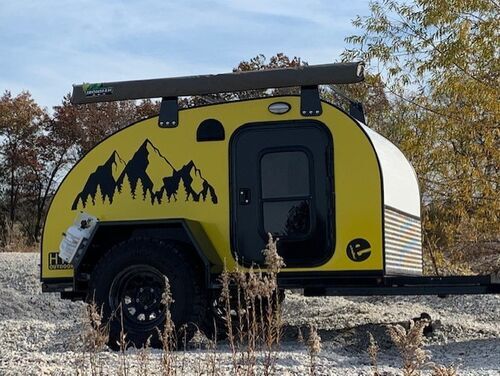
Many Tow Vehicle Options The great thing about teardrops is that, because they're so small and light, you have a lot of options for tow vehicles. Depending on the weight of the teardrop and tow capacity of your vehicle, many trucks, vans, and SUVs will be capable of pulling it. They Fit Almost Anywhere The smaller your trailer setup, the easier it is to tow, and the more places you can go without a problem. There are a lot of off-road-capable teardrop campers, and if you stay at campsites, you'll likely never have a problem fitting into a small space. Simplicity One of the big draws of teardrop camping is that when you downsize, things often get simpler. Hooking up a teardrop is relatively easy, since you can manually maneuver the camper over your hitch ball (rather than backing up perfectly under the coupler). Leveling is quick and painless. And since your space is limited, you'll really get to focus on bringing just the necessities and enjoying your time in nature without a lot of extra fuss.
Why Not a Teardrop Trailer?
Not Much "Hangout" Space Teardrops really do provide the basics, which is great for solo campers or couples who mainly want to travel, enjoy the outdoors, and still have somewhere comfortable to sleep at night. But if you're traveling with friends, kids, or pets—or if you plan on full-timing or working remotely—you might want to consider a larger camper. The only interior space inside most teardrops is the bed itself, so it doesn't lend itself to just hanging out inside the camper. One rainy day inside basically means staying in bed, since there's no "second space" inside. I'd also recommend looking into an awning for a sheltered outdoor space if you go the teardrop route. (Usually) No Bathrooms You'll need to really consider what you can live without and what you require for comfortable camping. Do you plan on staying at campgrounds with public bathroom and shower facilities? If not, are you okay without these amenities? Some larger teardrops do have wet baths, but these are generally more expensive and less widely available.
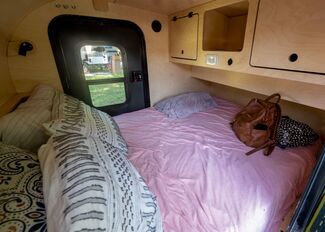
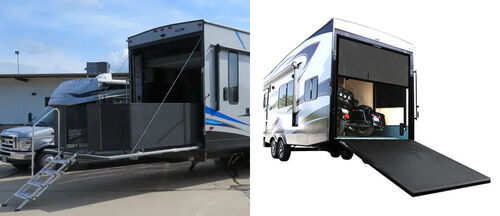
You Can Bring All Your Wheels If one of your main goals in camping is to explore new trails with your dirt bike or do donuts on your ATV (whatever floats your boat), a toy hauler makes that possible. Versatile Space Toy hauler garages are pretty roomy and comfortable, and many people actually use them as additional living space or bedroom. If you're traveling with kids, it can be nice to give them a separate space of their own. You Can Have a Patio Speaking of versatility, you can convert a toy hauler's ramp into a patio for extra outdoor hangout space.
Why Not a Toy Hauler?
There are No Small Toy Haulers If you're looking for space, you'll find it with a toy hauler. But of course, there are the usual tradeoffs of losing maneuverability in tight spaces and small campsites.
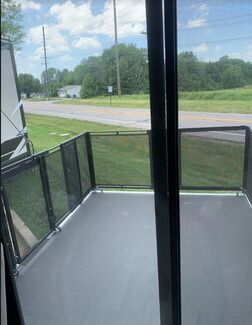
Conclusion: Final Advice for Buying an RV
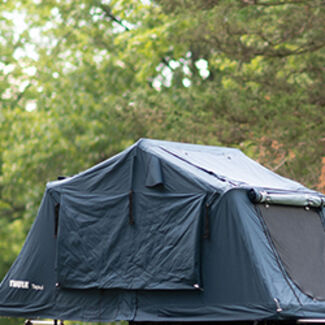
Bart
8/7/2022
Your link to "Camping Tips for First-Time RVers" links you to the wrong article? Can you provide a link to that article?
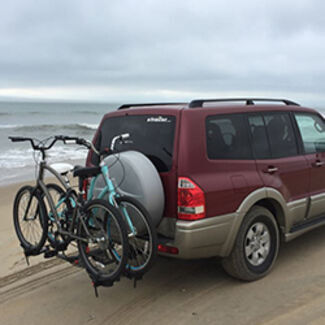
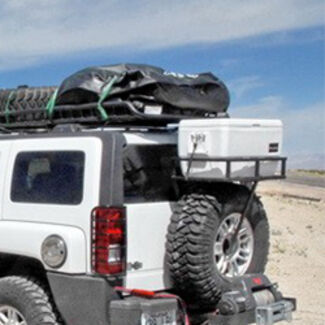


Departments
Towing
- Trailer Hitch
- Fifth Wheel
- Gooseneck
- Towing a Vehicle
- Front Hitch
- RV Hitch
- ATV Hitch
- HD Truck Hitch
- Vehicle Wiring
- Brake Controller
- Ball Mounts
- Weight Distribution
Sports and Recreation
Trailer Parts
- Utility Trailer
- Boat Trailer
- Landscape Trailer
- Enclosed Trailer
- 5th/Camper Trailer
- Car Hauler
- Horse Trailer
Vehicle
Contact & Help

Popular Vehicles
- Subaru Forester
- Ford F-350 Super Duty
- Ford F-250 Super Duty
- Chevrolet Silverado 1500
- Jeep Wrangler Unlimited
- Jeep Wrangler
- Ram 3500
- Toyota Highlander
- Ram 2500
- Chevrolet Silverado 2500
- Subaru Outback Wagon
- Chevrolet Silverado
- Dodge Ram Pickup
- GMC Sierra 2500
- Ram 1500
- Ford F-250 and F-350 Super Duty
- Jeep Grand Cherokee
- Toyota Tacoma
- GMC Sierra 3500
- Toyota Tundra
- Ford Escape
- More >>


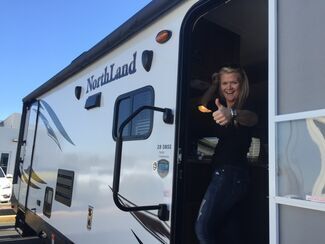
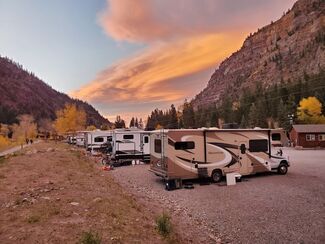
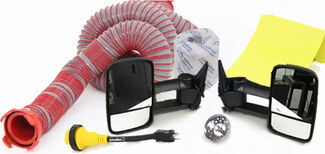
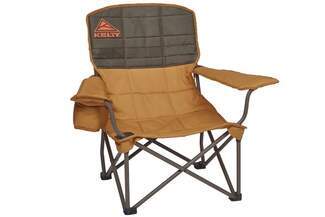
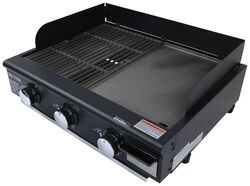
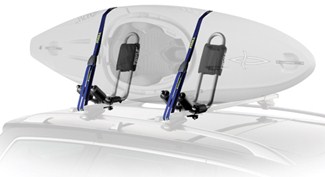
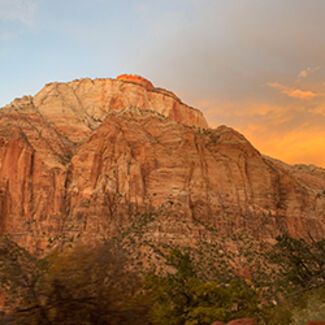
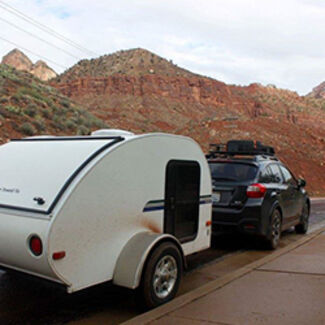
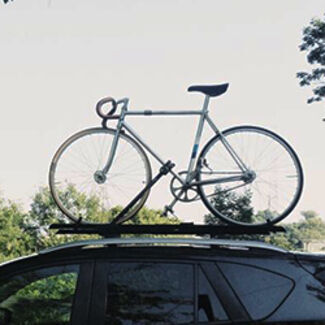

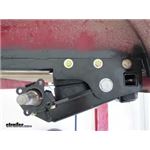














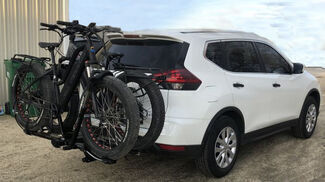








D. H.
8/8/2022
You did not list the Truck Camper. They are very popular. I have owned all types of RVs and the truck camper is my choice now that I have retired. It is the most convenient to travel with.